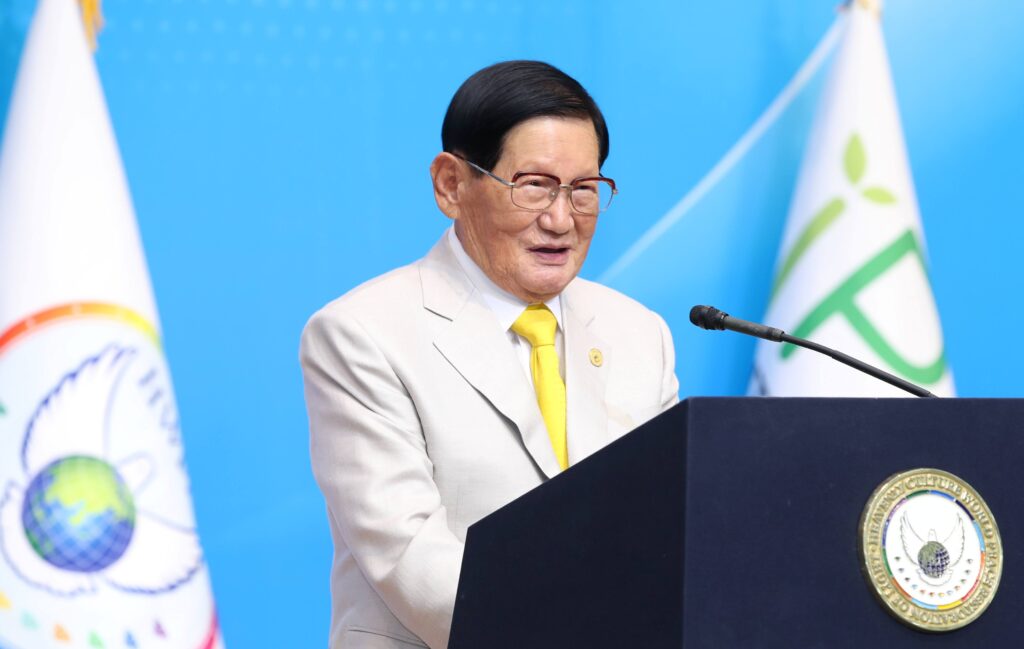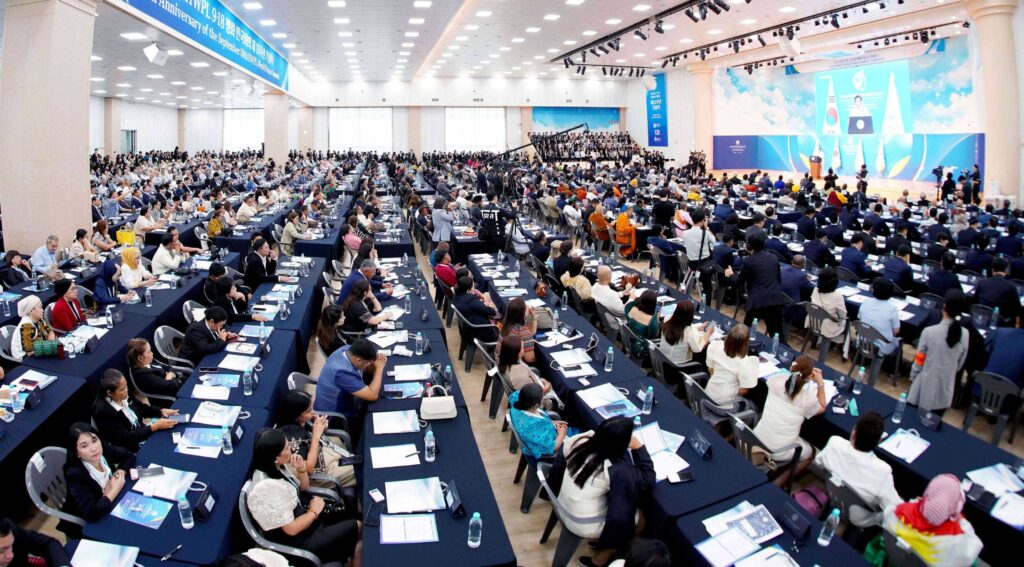
KUALA LUMPUR, Sept 22: “If we fail to establish a peaceful world in our time, we will burden future generations with conflict” – these words rang loud from Lee Man-hee, a fervent peace activist from South Korea, when he addressed the recent HWPL World Peace Summit in Cheongju, about 130 km south of Seoul.
“Conflict can never be good. Only the achievement of peace is truly good. What we leave behind must be a world of peace, not one of conflict. The work before us today is to commit ourselves to acts of goodness,” said Lee in a statement released here after the end of the four-day summit.
In a message to the summit, former Croatian President Ivo Josipović said, “All of us must be aware that our activity for banning war throughout the world is more important now than ever.”
Some 800 leaders, including former and current political leaders, ministers, members of parliament, judges, chief justices, and representatives from the education, religious, media and youth sectors from all over the world, attended the gathering in the provincial capital of North Chungcheong.
HWPL or Heavenly Culture, World Peace, Restoration of Light (HWPL), an international peace NGO based in South Korea, hosted the summit for the 11th time under the theme of “Uniting for Peace and Fulfilling Humanity’s Duty Together.” HWPL currently has a global membership of 580,000, an increase of 140,000 from 2024.

The summit showcased the organisation’s achievements and vision for peace, with an emphasis on collaboration between governments, international organisations, and civil society.
This year’s summit highlighted major progress in three key areas. In international law, HWPL’s proposed legal framework, the Declaration of Peace and Cessation of War (DPCW), gained significant traction. The Latin American and Caribbean Parliament (PARLATINO) and 16 other parliamentary and governmental bodies also adopted resolutions in support of the declaration.
HWPL’s Peace Education has also been institutionalised into public school curricula in more countries. Zambia’s Ministry of Education has implemented the programme in all schools in its capital, Lusaka, with plans for a nationwide expansion. Mongolia has also integrated the programme into its educational system.
In terms of interfaith dialogue, the Solidarity of Religions’ Peace Committee (SRPC) was launched. Since 2023, HWPL’s International Religious Peace Academy has implemented an interfaith learning programme that has been formally recognised in several countries as a platform for leaders and citizens to engage in peace-centred dialogue.
The summit also noted the need for peaceful Korean reunification.
Following the Cheongju gathering, further discussions on peacebuilding strategies are expected to be held in 78 cities worldwide in October.
WE